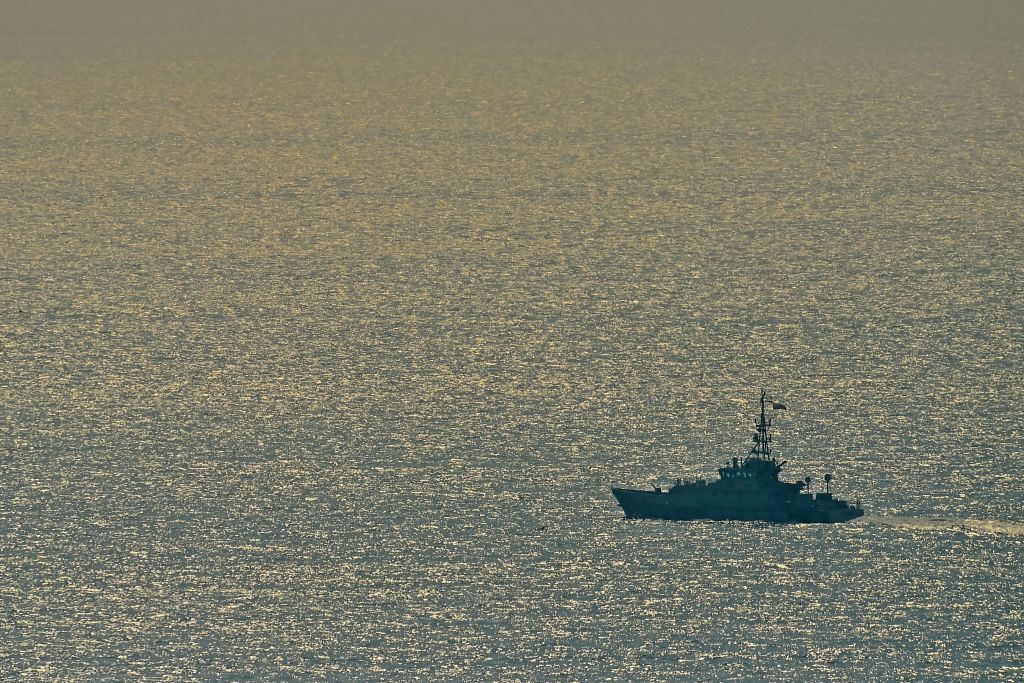Is it ‘irresponsible’ for the Royal Navy to plan to protect the fisheries of the UK’s Exclusive Economic Zone (EEZ) when the Brexit transition period ends? The chairman of the House of Commons Defence Select Committee thinks so. The BBC made much of it. But Tobias Ellwood is wrong: it would be irresponsible not to talk now of a deterrent credible in the eyes of prospective trespassers. And who might they be?
Given the importance which France attaches to our punishment on leaving the EU for reasons which have nothing to do with fish, but with much bigger psycho-dramatic issues that Robert Tombs and ‘Caroline Bell’ have recently explained, French eyes and minds should be the primary target. Only by making concrete preparations to counter their naval forces which they might feel tempted to deploy and by unveiling those plans and capabilities do we maximise the chance that they won’t try it on. The unveiling of the preparations is a seamless part of the act of deterrence. ‘If you desire peace prepare for war’ is a Roman truth that is also the motto of the Royal Navy.
So what does credible naval deterrence for New Year’s Day involve? In an essay on Briefings for Britain in December 2019, I displayed the legal, tactical naval and historical contexts of this imminent tasking. The Anglo-Icelandic ‘Cod Wars’ are central to that story. I explained how the UK’s de facto defeat by Iceland produced the silver lining of the 200nm EEZ concept in customary international law of the sea (UNCLOS) that has since translated into black letter law in many jurisdictions. The UK has profited greatly from this extension of sovereign control. Not least in oil and gas extraction.
Our entry into the EEC, however, led to unqualified defeat. There was a surrender of sovereign control in any common sense understanding of the word because UK waters became ‘community assets.’
Sure enough, in recent days both Ursula von der Leyen and assorted French and Belgian politicians have begun to speak of a right of access to British fisheries acquired by custom from the last four decades of the suppression of British sovereignty by the concept of ‘community asset’. Furthermore, creative legal ferreting is beginning to turn up claims from centuries old precedent. The Belgians are waving the ‘Fisheries Privilege’ of 1666 to claim ‘eternal right’ for fifty Bruges fishing-boats so that twenty-first century Britain may be ‘bound in with shame, with inky blots and rotten parchment bonds’. This should be taken as a sign of desperation rather than likely enforceable claims.
The Cod Wars position is almost precisely reversed today. The Icelandic Coastguard fielded four hull-strengthened patrol boats named after the Norse Gods. We have so far declared four offshore patrol vessels (OPVs); and a reasonable expectation must be that the French will use their navy to do just what the Royal Navy did in the Cod Wars. That is to provide naval escort to French (or Union) fishing boats in fishing ‘boxes’ with the express aim of over-matching – and thus paralysing – the currently declared OPVs. This requires French use of the Gendarmerie Maritime, of course, but, I would certainly expect, back-stopped by units of the MF FAN (Force d’Action Navale), i.e. full-size warships: frigates.
On that worst case planning assumption for credible deterrence of possible French miscalculations of our resolve, we need by the start of the new year to have in place more than four OPVs. We need a credible ‘surge’ capability, ready to be deployed to accomplish three inter-linked tasks: resumed aerial reconnaissance that was cancelled by Theresa May; boarding parties on ships along a picket line and the ability to ‘ride off’ French escorts just as the Icelandic Coastguard ‘rode off’ Royal Navy frigates. ‘Riding off’ carries a risk of collision with paradoxically fragile modern warships, which is why it is a powerful threat to make.
Credible deterrence also requires firmness of political will. Ever since the Prime Minister’s lapidary speech of 3rd February 2020 in the carefully chosen venue of the once (and future?) Royal Naval College at Greenwich, which was reinforced later that month, on 18th February at L’Université Libre de Bruxelles, by Lord Frost’s equally clear speech, I have seen consistent evidence that the government does have the will – and has had it on display for many months for those who can bear to see it.
As the end of the year approaches, I expect that more of these preparations will be unveiled which, in response to Ellwood, the Secretary of State for Defence has hinted have been made. On cue, yesterday saw the curtain twitch. On 16 December the Maritime Enforcement Powers (Specification of the Royal Navy Police) Regulations 2020 were made and on 17 December laid in Parliament to come into force on 7 January.
Gwythian Prins is Emeritus research professor at the LSE and director of the Cambridge Security Initiative Research Unit






Comments